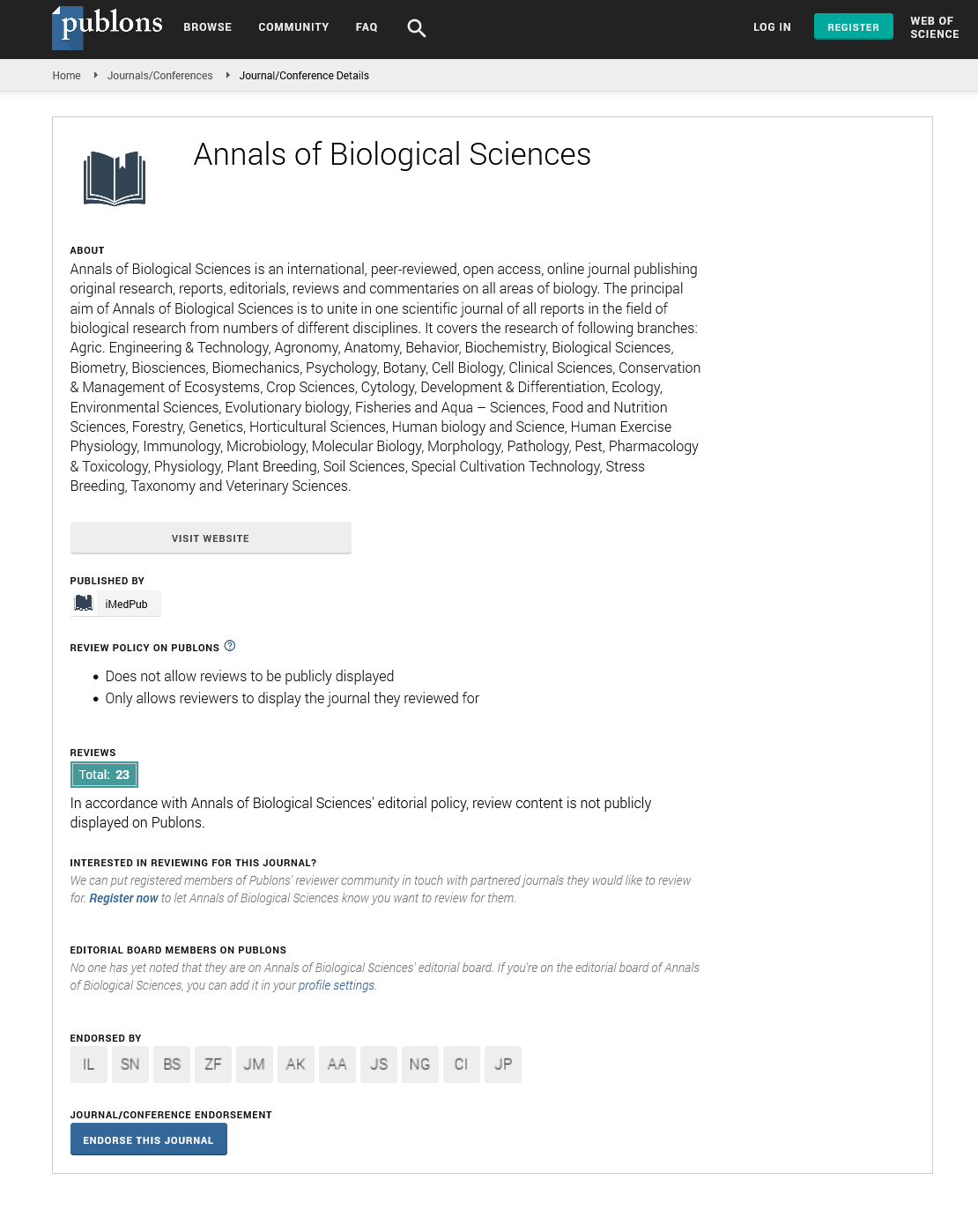ISSN : 2348-1927
Annals of Biological Sciences
Abstract
Clozapine Modulates the Glycogen Synthase Kinase-3 Signaling partly via GABAB Receptors
Schizophrenia is a severe and chronic mental illness and affects a large portion of the world population. Clozapine is currently used in the treatment of schizophrenia patients, but it causes serious side effects, such as extrapyramidal symptoms (EPS). Thus, understanding the details of signaling pathways in pathology of schizophrenia is critical for the identification of novel therapeutic targets to develop more effective and specific antipsychotic drugs with fewer side effects. Glycogen synthase kinase (GSK)-3 is a protein kinase that has been shown to involve in schizophrenia, and clozapine has been reported to increase phosphorylation of glycogen synthase kinase (GSK)-3α/β (Ser21/9) in brain regions of rats related to schizophrenia. However, the pathways that mediate the effect of clozapine on GSK-3 were not clearly discovered. GABAB receptor has been reported to be associated with schizophrenia and activation of GABAB receptors may exert antipsychotic effects. Meanwhile, accumulated evidence suggests that the antipsychotic effect of clozapine may be partly mediated by modulating GABAB receptors. In addition, in our previous study, we have reported that GABAB receptors modulate GSK-3 signaling via the β-arrestin-dependent pathway. Activation of GABAB receptors will increase the phosphorylation of GSK-3α/β (Ser21/9) via activation of Akt and this effect depends on the existence of β-arrestin. These data indicate that clozapine may modulate GSK-3 activity via GABAB receptors. Here we report that clozapine increases phosphorylation of GSK-3α/β (Ser21/9) partly via GABAB receptors, which provides more specific target for treatment of schizophrenia, and avoidance of side effects of current antipsychotic drugs.
Author(s): Ping Su, Anlong Jiang, Fang Liu
Abstract | Full-Text | PDF
Share This Article
Google Scholar citation report
Citations : 406
Annals of Biological Sciences received 406 citations as per Google Scholar report
Annals of Biological Sciences peer review process verified at publons
Abstracted/Indexed in
- Google Scholar
- China National Knowledge Infrastructure (CNKI)
- WorldCat
- Publons
- ROAD
- Secret Search Engine Labs
Open Access Journals
- Aquaculture & Veterinary Science
- Chemistry & Chemical Sciences
- Clinical Sciences
- Engineering
- General Science
- Genetics & Molecular Biology
- Health Care & Nursing
- Immunology & Microbiology
- Materials Science
- Mathematics & Physics
- Medical Sciences
- Neurology & Psychiatry
- Oncology & Cancer Science
- Pharmaceutical Sciences
